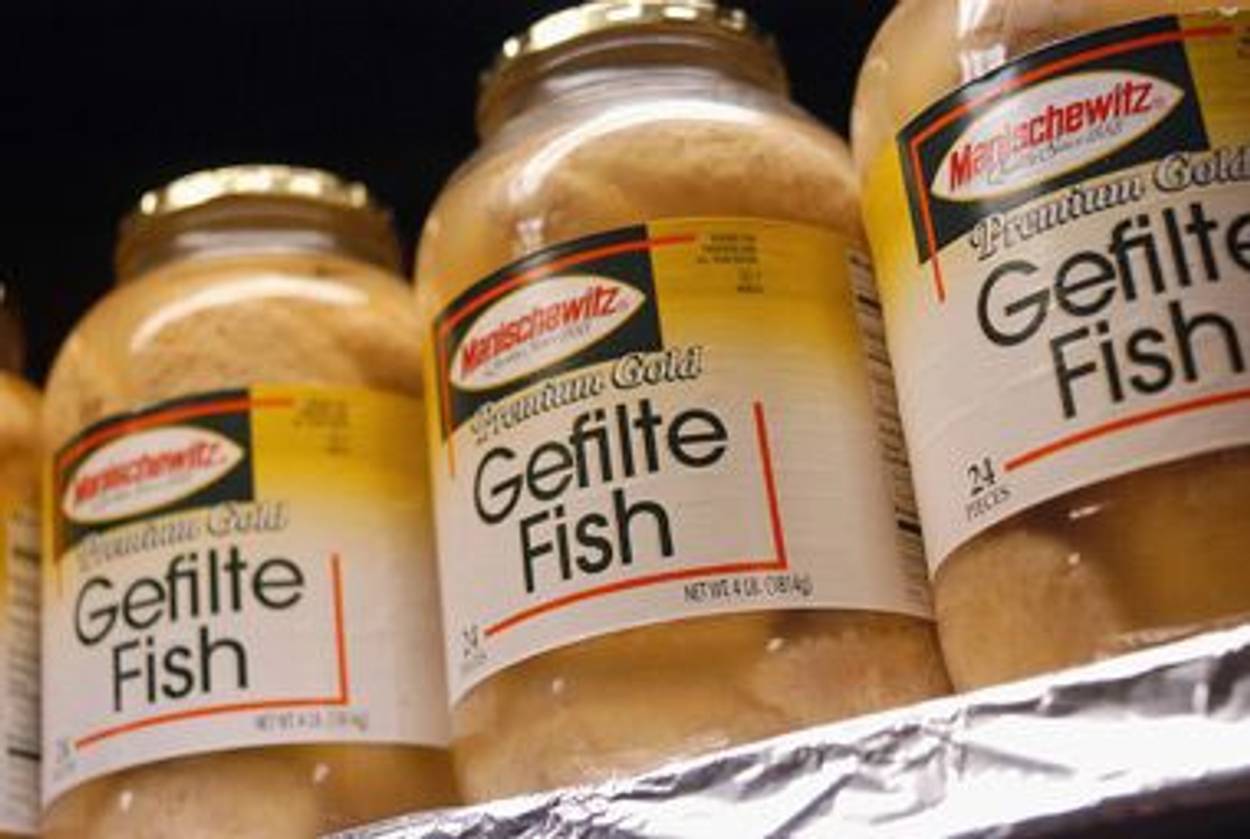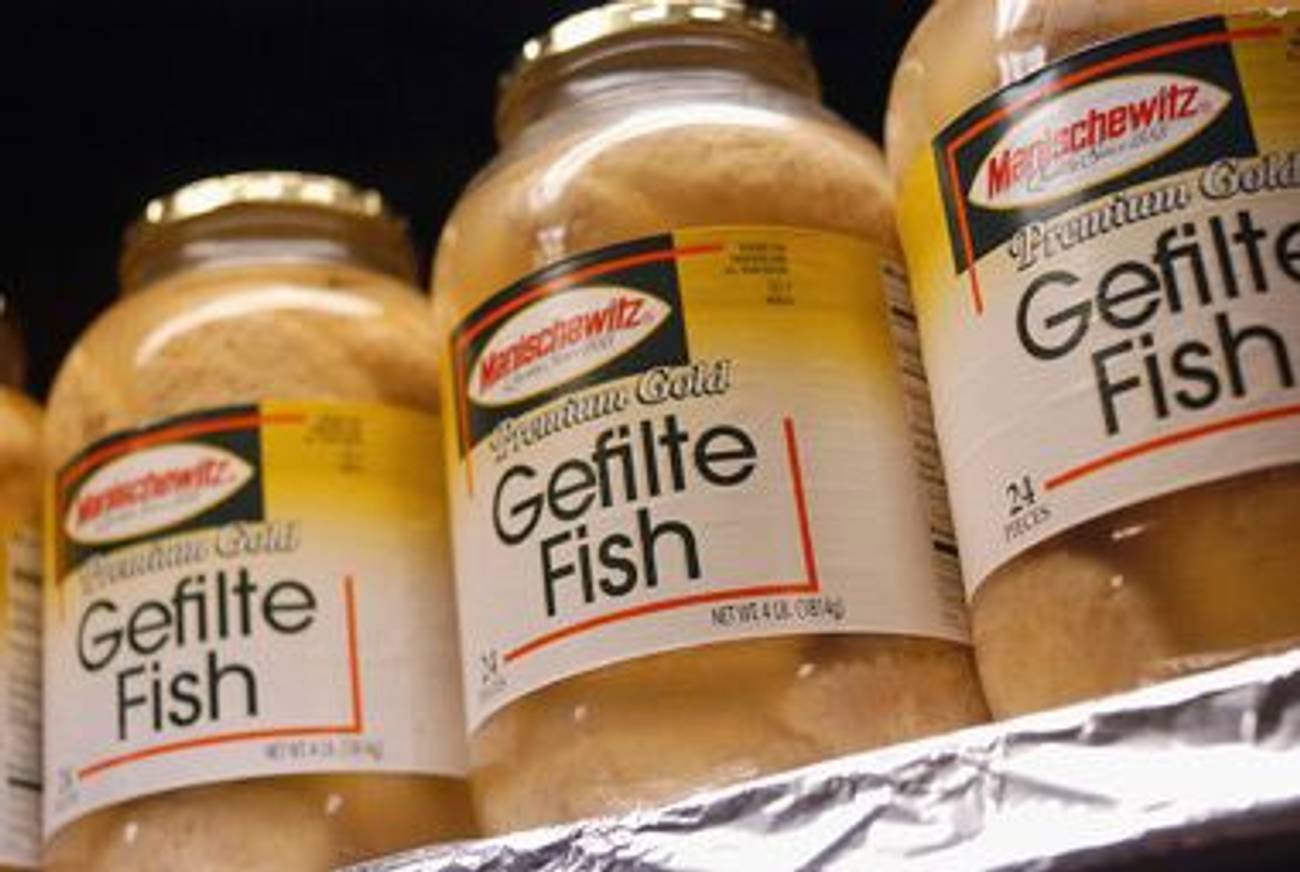Push-Pull
I became a Jew at the age of 39, and I love my new faith. But learning to embrace Jewish food—especially at Passover—was another story.




Spring is upon us, and with it comes my annual Pesach anxiety. As the holiday approaches each year, my insecurities as a Jew, which I do a pretty good job of concealing, get thrown into sharp focus. I can ignore my problem most of the time, but at Passover my sense of unease plops right down in Elijah’s chair, similarly invisible but exerting a disheartening power over me. I struggle with not liking Jewish food, and at Passover I have to confront it.
I became a Jew at age 39, in 2005. All my life I have been a religious person, and the fact that my parents deliberately gave their children no religious training did not dampen the spiritual enthusiasm in me. My journey toward my faith was more deliberate, intense, and sustained than most.
From about the age of 18 onward, I lived reasonably happily as a Quaker. However, after many years, and alongside a growing pull toward Judaism, Quakerism’s stolid serenity began to look like passivity. I wanted more vigor in my worship and faith life.
After decades of timidly reading Jewish books and asking Jews about Judaism, I wound up by accident at Congregation B’nai Jeshurun on Manhattan’s Upper West Side, and no sooner had I seen how the rabbis prayed there than I knew the little voice I had been ignoring for years couldn’t be shut out any longer.
Religiously speaking, my conversion a little more than a year later was a cakewalk. Moving from one culture to another turned out to be more of a challenge. And as I made my way from the placidness of the Quakers into living my life as a Jew it became more and more evident where the source of my feelings of Jewish inadequacy were located: in food. I don’t like American Jewish food. (And before you start telling me I don’t have to like or eat Ashkenazi food in order to be a Jew: I know, but it’s no good arguing. In this country, certain foods form a foundation of our Jewish cultural tradition, of shared experiences. On some level, I think I must embrace the matzoh ball and the gefilte fish.)
But it’s more than the food. This time of year Jewish memories come roaring out of the past, thousands of years of eating and food and legend and Torah. I see the fondness for the holiday in my friends’ eyes, hear it in the familiar, and familial, warmth of their voices as they recall Passovers gone by. It’s as though I suddenly realize that everyone went to the same summer camp and I did not.
(A couple years ago I sat through an excellent PBS movie about preparing for Passover called The Gefilte Fish Chronicles, and I cried the entire time.)
Passover and everyone’s reminiscences and fond feelings about it underline for me the fact that my parents weren’t Jews, and moreover they are both dead now and never even knew me as a Jew. I have no Jewish childhood. Daddy never said a blessing over wine (trying to picture my stoutly atheist father saying any kind of a blessing makes me smile); Mom never lit candles or produced a brisket for us. Among other things, food just wasn’t meaningful in my world until recently.
Some families in the American Protestant culture no doubt do share loving, food-infused family traditions, but mine did not. We ate turkey on Thanksgiving, but that holiday brings up memories of a stressed-out Mom grimly producing a feast for the table around which we argued the same as every other day. I come from a culture of zero ritual, no sense of anything larger than ourselves.
I asked David Kraemer, a professor of Talmud and Rabbinics at the Jewish Theological Seminary and author of Jewish Eating and Identity Through the Ages, why the food was so crucial to Passover. “Pesach is about memory,” he said, which, added to the multiplicity of senses involved in the Seder, makes for an intimate experience. “It’s important to recognize that if you go back to Exodus 12,” he added, “the commandments about what should be eaten and how they should be eaten come before the events themselves.” The primary emphasis on the food and its treatment comes from the highest and oldest authority imaginable.
When davening I have the overwhelming sensation of being an integral part of a vast and venerable whole, but around the Seder table I become an uncomfortable amalgam of the wicked child and the one who just doesn’t know how to ask.
About a year ago, I decided enough was enough. OK, so I loathe matzoh: So what? I will learn how to cook with it, and maybe I can make my feelings change. Same with chicken soup, brisket, tzimmes. Over the past year I have roped my friends into teaching me to cook food the way the Jewish grandmothers I never had did not.
Slowly I have made my way down an unofficial list. I made fish balls with Toni, matzobrei with Joan, kugel with Stephen, chopped liver with Harriet and Jenny. “Show me how to make blintzes,” I said to my friend Joe around Shavuot last year, and he taught me just as his mother had taught him. He told me about how her stovetop didn’t get the right temperature, so she held the bletlach above the electric burner largely in her hands and had the burns on her fingers to prove it. (She didn’t even like blintzes herself, but her little boy did.) Broadening the scope of my project to include some Sephardic foods, I painstakingly baked traditional Syrian ka’ak for my rabbi, who pronounced them, “just like my mother’s!”
The first time I tried baking challah, when I began to knead the dough my eyes filled suddenly with tears. At that moment, I understood something with my body about tradition and food and being a Jew. Now when I go back home to Ohio and visit my brother’s family, I always make a big Shabbat dinner on Friday nights for a big table of big Midwestern goyim. To them it’s just roast chicken and challah and wine. But I, as a Jew, know better. It reminds me of a recent d’var Torah my rabbi gave; he spoke about Rav Soloveitchik’s contention that, whereas eating alone is a mechanical act, when people share food hesed is present.
Judaism makes living life more coherent, more valuable: Prayer organizes the day, Shabbat defines the week, the hagim order the year. This system is profoundly at odds with how I grew up, but now I’ve embraced this new paradigm, and it nourishes me, and I thank God for it. It has allowed me to realize that whereas food merely sustains our bodies, the growing, cooking, and enjoying of it together offer us an opportunity to consecrate something. And with every passing year, as my own memories and experiences accrue, Passover begins to look less like a party I wasn’t invited to and more like a chance to take ownership of something ancient and beautiful.
Siân Gibby holds the position of writer/editor at the John D. Calandra Italian American Institute. She is the translator of Intimate History of the Great War, by Quinto Antonelli; The God of New York, by Luigi Fontanella; and Resistance Rap, by Francesco Carlo.